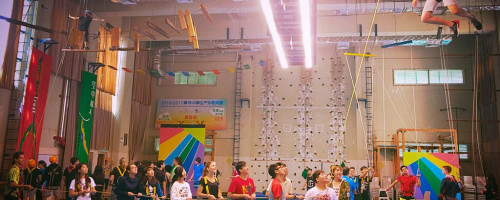
Working Past The What-ifs
By Ian Jefferson, Middle School Vice-Principal
As the greatest hockey player of all time, Wayne Gretzky, once said: “You miss 100% of the shots you don't take.” In other words, if you don’t take risks – you’ll never be rewarded.
Our day-to-day lives are filled with a myriad of potential scenarios called “what ifs”. These scenarios range from the reasonable to the highly improbable. For many of us, the realization that we could fail prevents us from trying at all. I could climb that climbing wall, but what if I fall? I could perform at the assembly, but what if I forget all of the words to my song? These “what ifs” are rarely accurate and hold us back from our true potential. By default, our brains have been trained to focus on what could go wrong instead of what could go right. Fear of the possibilities has gripped us so tightly that we are unable to see past the infinite negative outcomes that become increasingly illogical.
I still remember where I was when I became aware of a groundbreaking mantra that changed my life for the better. Early in my career I was working as an educational assistant in a Middle School classroom when I noticed a colourful poster hanging on the wall. This poster contained an extensive list of words of wisdom for students. Many were fairly generic (“Get plenty of sleep”) while others were humorous (“Stay away from the sloppy joes!”). Deep within this list, however, was one sentence that really struck me – “I’ve learned that the majority of the things I worry about never happen!”
Worrying about consequences is natural. Our survival depends on us ensuring that we are aware of potential consequences. However, when this anxiety holds us back from experiencing all that the world has to offer - that’s where the problem begins.
At the beginning of the school year, the grade 9 students travel to the Don Bosco Educational Centre where they partake in a number of team-building exercises and challenging activities designed to test their resolve. One activity in particular – the climbing wall – proves itself to be a challenge. Year after year, I have seen a number of students express reluctance and downright refusal to attempt the wall, despite the reassurances that the activity is completely safe.
One student in particular stands out in my memory, as she could barely contain her distress. She was visibly shaking and crying at the thought of climbing to the top. She was adamant that there would be no way that she would ever set foot near that wall. She had convinced herself that she would fall. After much discussion and persuasion, she had agreed to climb the wall but only to the point where her feet would barely be off of the mat. This was a huge step for her, so her peers and teachers cheered her on. Imagine our collective shock when she proceeded to race up the wall faster than anyone else that day. She reached the top and rang the bell with such confidence that her initial tears of fear turned into tears of joy. Not only did she conquer the wall, but she conquered her “what ifs” on that day.
As educators and parents, it’s imperative that we encourage our students to see the possibilities that lay before them and to not perseverate on the endless negative outcomes that could happen. Risk-taking is a quality that all great innovators possess. This is why at TIS we provide an endless number of experiences for our students that push them outside of their comfort zones and allow them not to give in to the what ifs. We work to create risk-takers through many different facets of our educational and extracurricular programming. From sports teams to public speaking to Experience Week – each component plays a huge role in assisting our students to move past the what ifs to see what they are truly capable of accomplishing.
So let’s gives these kids a hockey stick, lace up their skates and let the shots fly.



